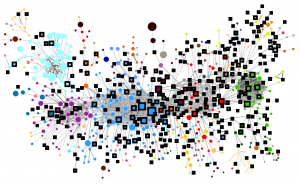 Joseph Bailey’s comment on my last post included this thought: Is a representative democracy viable in a complex system where the neurology of people can’t keep pace with the level of changes being forced upon them?
Joseph Bailey’s comment on my last post included this thought: Is a representative democracy viable in a complex system where the neurology of people can’t keep pace with the level of changes being forced upon them?
This question gets at a core struggle for our society in the second decade of the 21st Century, especially under a new administration that is challenging so many norms of political and social discourse. My starting point is to reframe the question, since to me it is not a ‘given’ that our neurology cannot keep pace with the change around us. I offer the following formulation:
What changes are most profoundly reshaping our experience, and how can we more fully use our capacities to achieve positive civic dialog and just governance?
The corollary question for educators is: How can we best cultivate the qualities that foster the capacity for collectivity and justice?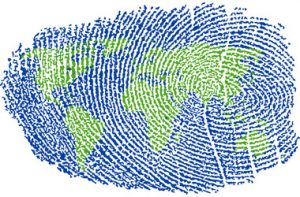
These are huge questions! I don’t pretend to have answers, and I don’t want to delve into the nature of those huge changes here. But I love playing with ideas and sharing perspectives. And I confess to a diehard optimism. So let’s start with our response capacities.
A fundamental factor shaping our capacity is our worldview, the conceptual lens through which we view and understand our experiences. A worldview is an operating system, a means of filtering and cataloging information. Worldviews are complex and powerful. As it happens, we tend to seek validation of existing beliefs more than we accept new information incongruent with our beliefs. This tendency is called ‘confirmation bias.’
Confirmation bias is a way of limiting the discomfort of ‘cognitive dissonance’ – the difficulty of wrestling with conflicting or competing beliefs. This bias has been empirically documented, and represents a clear obstacle to meaningful discourse.
 The authors of one study, Hart et al (2009), articulated this issue as such: “Receiving information that supports one’s position on an issue allows people to conclude that their views are correct but may often obscure reality. In contrast, receiving information that contradicts one’s view on an issue can cause people to feel misled or ignorant but may allow access to a valid representation of reality. Therefore, understanding how people strive to feel validated versus to be correct is critical to explicating how they select information about an issue when several alternatives are present.”
The authors of one study, Hart et al (2009), articulated this issue as such: “Receiving information that supports one’s position on an issue allows people to conclude that their views are correct but may often obscure reality. In contrast, receiving information that contradicts one’s view on an issue can cause people to feel misled or ignorant but may allow access to a valid representation of reality. Therefore, understanding how people strive to feel validated versus to be correct is critical to explicating how they select information about an issue when several alternatives are present.”
It isn’t hard to see, across the political spectrum, that this proclivity for affirmation over accuracy is widespread. Clearly, one challenge we face is to embrace the complexity of issues, make peace with the contradictions that are embedded within those issues, and commit to pursuing accuracy over affirmation. That urge for affirmation is served, dysfunctionally, by narrowcasting, facilitated by the Internet. Narrowcasting makes it easy to seek out only affirmative information.
We need to get outside our bubbles. Trying to understand other’s beliefs/values does not inherently jeopardize ours. Acknowledging our inherent personal biases as well as institutional biases embedded on our cultural context, is a vital step to reduce polarization.
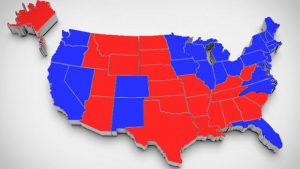 We also need to understand others’ worldviews. George Lakoff, a professor of Cognitive Science and Linguistics from UC-Berkeley, has powerfully analyzed how our thinking shapes our dialog. He observes, for example, that conservatives studying politics typically opt for marketing and business courses, where they learn how people think and how to influence them. Progressives studying politics typically pursue a more classical liberal education in which reason, derived from Cartesian logic, is a process of proof. Given a certain set of facts, coupled with logical thought, smart people will reach the same conclusion, right? Well, in the real world, they don’t.
We also need to understand others’ worldviews. George Lakoff, a professor of Cognitive Science and Linguistics from UC-Berkeley, has powerfully analyzed how our thinking shapes our dialog. He observes, for example, that conservatives studying politics typically opt for marketing and business courses, where they learn how people think and how to influence them. Progressives studying politics typically pursue a more classical liberal education in which reason, derived from Cartesian logic, is a process of proof. Given a certain set of facts, coupled with logical thought, smart people will reach the same conclusion, right? Well, in the real world, they don’t.
The way the two groups develop their thinking is very different and gives rise to different strategies. As a result, conservatives are more effective at convincing others of their views – selling them, if you will – than progressives. (The outcomes of this are evident in today’s America.)
 The differences go further, though. Our families are the context in which our first values develop. Lakoff explains, “The conservative and progressive worldviews dividing our country can most readily be understood in terms of moral worldviews that are encapsulated in two very different common forms of family life: The Nurturant Parent family (progressive) and the Strict Father family (conservative).”
The differences go further, though. Our families are the context in which our first values develop. Lakoff explains, “The conservative and progressive worldviews dividing our country can most readily be understood in terms of moral worldviews that are encapsulated in two very different common forms of family life: The Nurturant Parent family (progressive) and the Strict Father family (conservative).”
These differences shape how we view authority and make decisions. Those raised in ‘strict-father’ families value individual responsibility more, whereas those from ‘nurturant-parent’ families tend toward social responsibility. These biases don’t preclude meaningful dialog and sharing of values, but if they’re not understood – a big frustration of Lakoff is that they aren’t – then polarization and escalation of differences result. Again, this dynamic is reflected in the 2017 political landscape.
I recommend a careful read of some of Lakoff’s recent essays. Even though his bias is obvious, he manages to irritate people on both the left and the right, and more importantly, he offers insights not found in many other places.
Ultimately, we have to budge. To better understand how our worldviews shape politics and public discourse is not only possible, but is prerequisite to achieving civic society and just governance. We must change, be willing to hear others’ views and build common ground with them. We need to muster the maturity to withstand cognitive dissonance in the pursuit of accuracy, not just affirmation.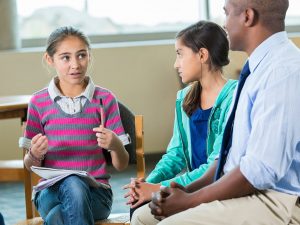
I don’t have room here to move into questions of neurology, which Joseph Bailey wisely pointed to as a factor in our ability to manage complex social systems. That will need to become a future topic. Our increasing understanding of neurobiology is a great tool, though, for improved relationships and effective education.
So let me close by returning to the role of educators in all this. While there are engineers, bus drivers, farmers and others leading progressive change, educators have the distinction of being explicitly dedicated to human change. Educators must come to understand the issues at the root of our worldviews and learn how neurology shapes our relationships. And we need to model the qualities we know are needed in our students, setting the stage for an inclusive and courageous path toward health and justice for all living things.
Let me know your thoughts!
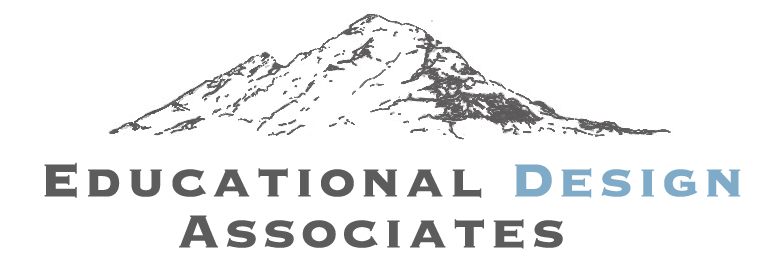
Good piece. I’m still contemplating whether a populace who chooses to be unmoved by rational thought can effectively run a democracy. This was the original intent of the electoral college (plus the whole power thing for rural land holders!) This previous election continues to prove that there are more people who are not interested in a reasoned approach to governance (I would posit that they don’t want independent thinkers for children). I think educators assume that all parents want their children educated to be able to logically pursue life- but when this flies in the face of breaking with traditions the parents don’t want it. Confirmation bias is a solidly researched phenomena and yet we are surprised when parents don’t want their children educated in a way that is contrary to their beliefs? BTW- the gray font was a bit hard to read on my device while I was traveling.